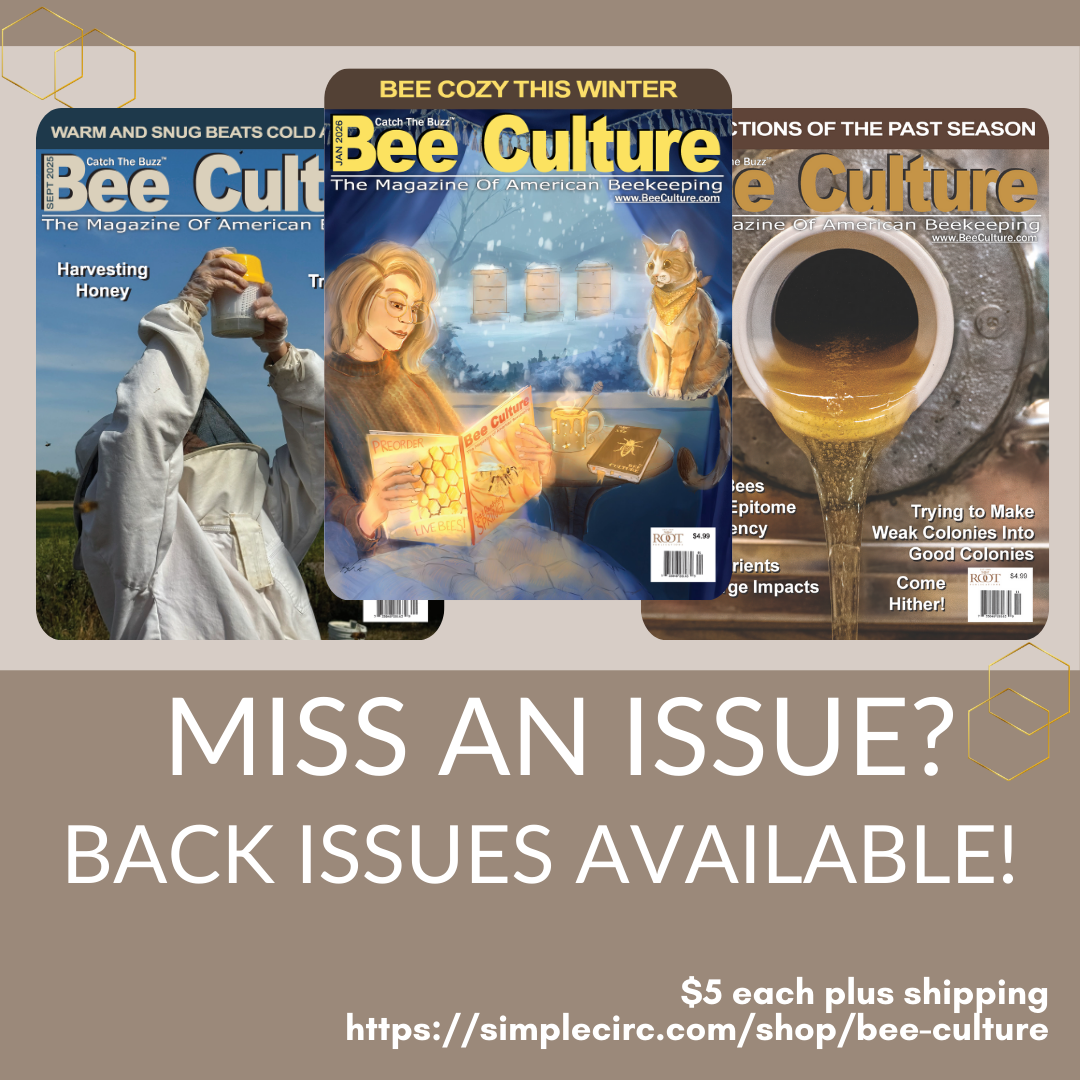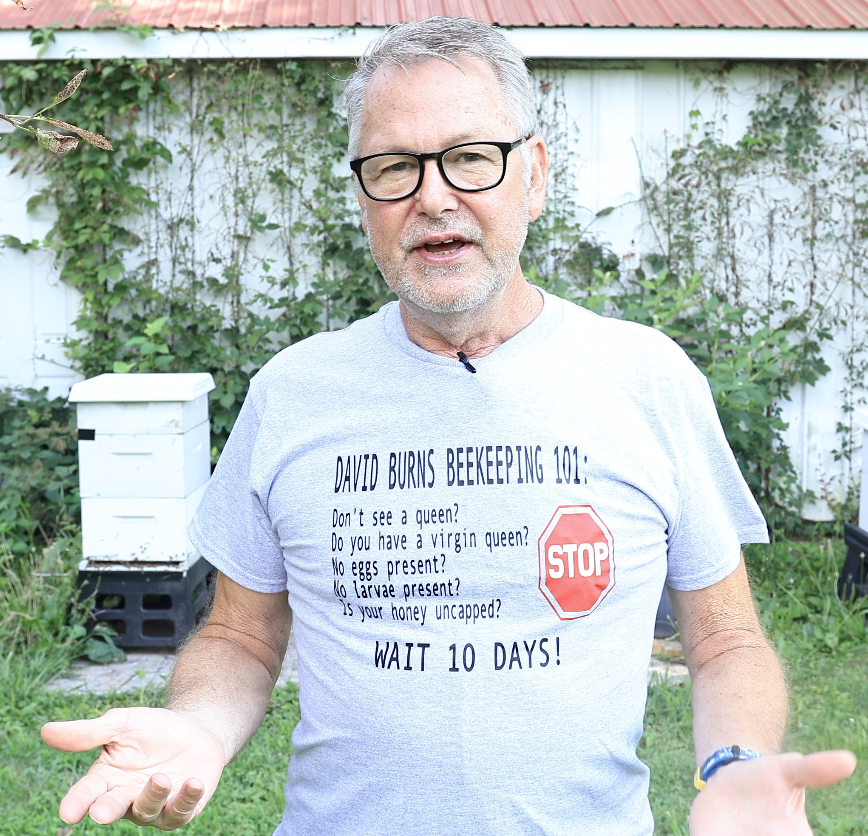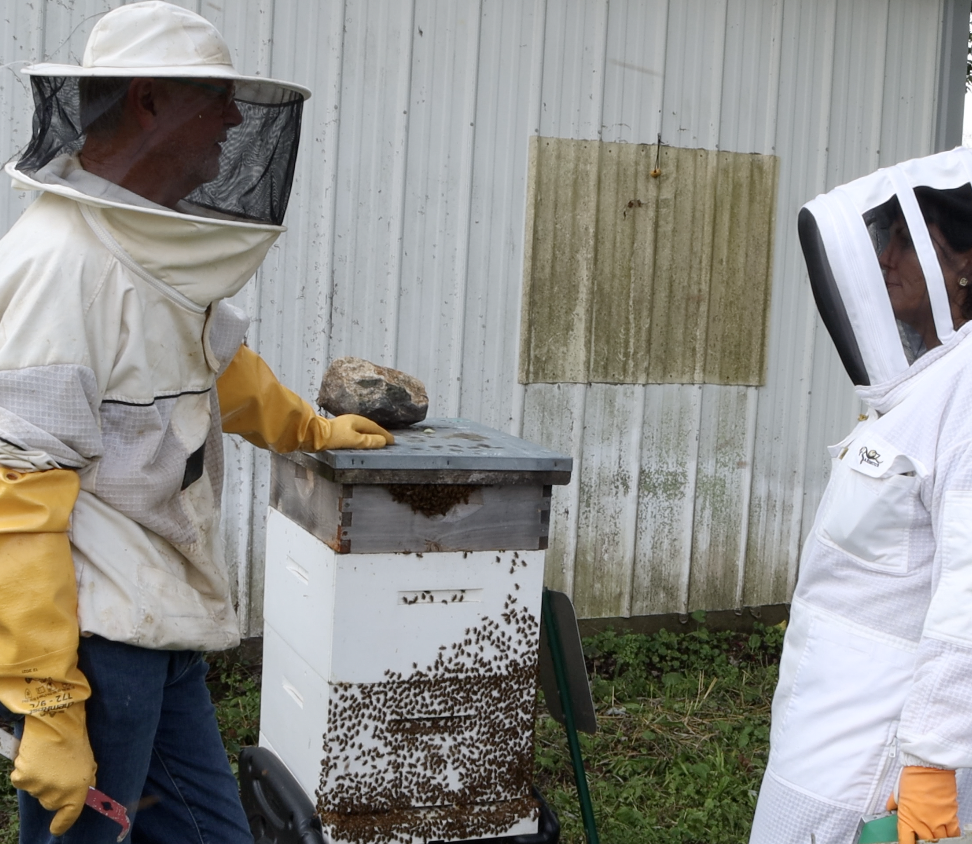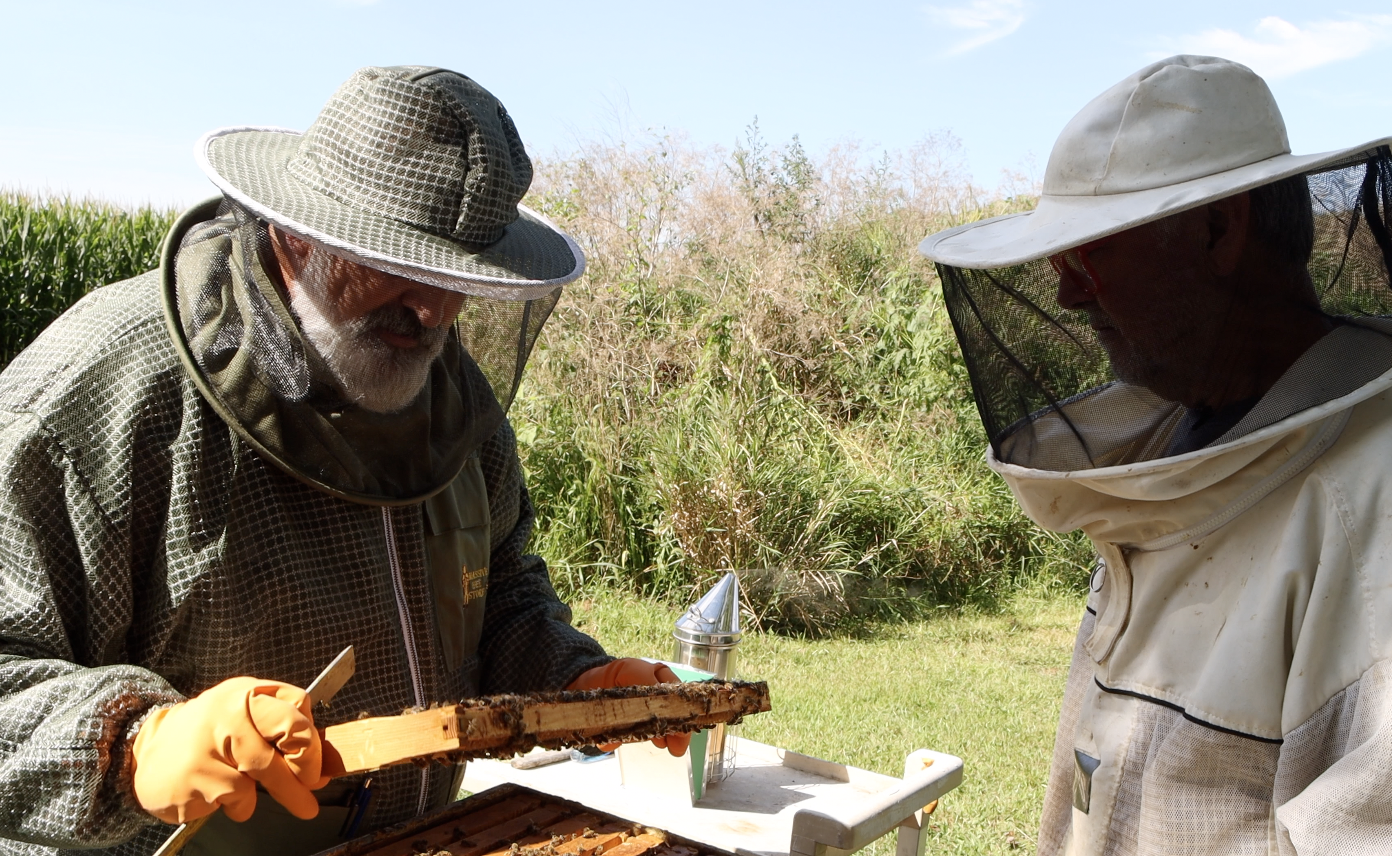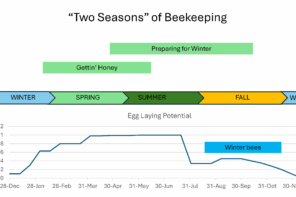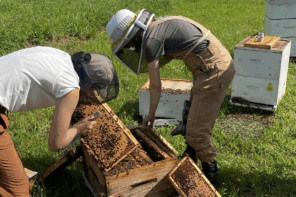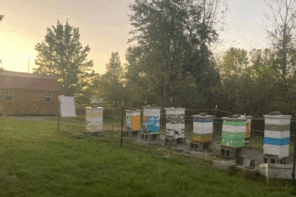Click Here if you listened. We’d love to know what you think. There is even a spot for feedback!
Read along below!
Learning the Art of Answering Beekeeping Questions
By: David Burns
Beekeeping breeds questions and how we answer these questions matters. Some answers may cause more confusion or leave someone feeling overwhelmed. Learning the art of answering questions can help build confidence, deepen their understanding and lead to better decisions.
WAIT MIGHT BE THE BEST ANSWER
I give out the same answer to so many beekeepers that my team made me a shirt that says, “Wait 10 days!” I say this so often when I’m asked questions because by waiting 10 days so many things become clearer and more obvious. 10 days really isn’t going to hurt the bees. Are they queenless? Wait 10 days and look again. 10 days may reveal the new queen or a new queen cell. Waiting 10 days is a way to gather more data from the hive. There could finally be visible eggs in 10 days.
Mentors and most beekeepers are faced with an abundance of first-hurtle questions from first year beekeepers who realize there is more to beekeeping than what they bargained for. “How long should I feed my new package?”, “When should I do my first mite test?”, “Why aren’t my bees drawing out frames?”, “When should I add my honey supers?”
Some questions start with lengthy background stories going back to when grandpa used to keep bees. Eventually we may be shown a blurry, pixelated picture on a tiny iPhone. If you’ve spent much time at all answering beekeeping questions you quickly realize there rarely is a quick and easy answer.
When I took my Master Beekeeper tests at the Eastern Apicultural Society in 2009, one section was an oral exam. It was intimidating to sit in front of three experienced master beekeepers and answer their questions on the spot. That experience reminded me how important clear and thoughtful answers are.
Whether you are a new or experienced beekeeper, answering beekeeping questions is a sure thing. I’d like to share what I’ve learned over the years to be as helpful as I can in the answers that I give.
REPRESENT BEEKEEPING IN A POSITIVE LIGHT
I’ve made a commitment that no matter what question I am asked I will find a way to speak positively about beekeeping. Sometimes a beekeeper might be mad or sad that all their bees died. I try very hard to be empathetic and to let them know that they gained a vast amount of knowledge from their first year and they’ve made the investment in the equipment. Next year their hive has all the comb drawn out, which will give their new package or nuc a head start.
Our answers should encourage rather than intimidate. Often questions are asked because a mistake was made and the bees are suffering. Make sure in your answer that while you acknowledge the mistake, you frame it as part of the learning process.
LISTEN CAREFULLY AND READ BETWEEN THE LINES
As beekeepers describe their problems, it’s often difficult to visualize what’s going on. It’s easier if you are on site inspecting the hive, but when you are only being told what’s happening, it’s nearly impossible to get a complete understanding. Try to listen carefully for clues that might help you stitch together the whole picture.
ASK QUESTIONS
No matter what someone asks, we need to remember two important words: IT DEPENDS. Beekeeping is very conditional. Before we can answer, we need much more information. If it’s a question on social media, we need to know where they live to determine their region and climate. The only way to get to the bottom of a problem is to ask questions. When was the last time they saw their queen? Are there eggs, larvae, pupae? Do they have honey stores? Does the queen have good laying pattern? Do you know if they swarmed?
ANSWER AS ACCURATELY AS POSSIBLE
Nothing will make us better beekeepers faster than teaching and answering questions because we learn how much more we need to learn. We need to answer as accurately as we can. The more knowledge and experience we have, the more our answers will be accurate and helpful.
BE HONEST IF YOU DON’T KNOW
It’s tempting, when we don’t know the answer, to punt and say something that may not be a very good or accurate answer at all. If we do not know, we need to admit that we have no idea. When I’m faced with a question that I do not know the answer to, I admit I don’t know but I make sure they know that I am going to find out and get back to them.
HELPFUL
When we are asked a question, our answer should be understandable, practical and helpful. If we merely recite science and theory but fail to give the struggling beekeeper good and practical things to try, they are not helped.
If you’d like to join me in answering beekeeping questions, join my beekeeping livestream: www.honeybeesonline.com/live




